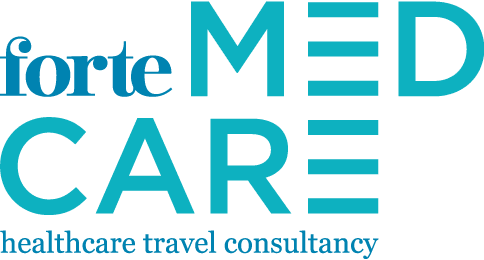Oral, dental and maxillofacial surgery is one of the most important surgical procedures. It is performed to treat injuries, relieve diseases, and improve the appearance. Oral and maxillofacial surgery is a complex specialty that requires a lot of knowledge and experience.
Many people are prone to losing their teeth. This is because the teeth are very sensitive and damaged by daily activities. Oral, dental, and maxillofacial surgery is used to treat both dental and oral disorders as well as jaw problems.
What are Oral, Dental and Maxillofacial Surgery Treatments?
Oral and maxillofacial surgery is a specialty of medicine that focuses on diseases of the mouth, teeth, jaw, and other facial structures. It is also known as dental surgery.
Oral and maxillofacial surgery involves a wide range of treatments, from the removal of teeth and/or jawbone to prevent or treat disorders to the treatment of gingival diseases. In general, treatments requiring surgical intervention fall within this category.
There are numerous dental treatments, including extraction, replacement with artificial teeth, repair of injured bones and muscles, and reconstruction of the mouth.
Oral and maxillofacial surgery is one of the professional operations that can be performed by a dentist or a surgeon. Oral and maxillofacial surgery covers procedures performed on the mouth and face. These include dental procedures such as extraction, root canal treatment, dentures, fillings.
General Anesthesia and Operating Room
Dental and jaw procedures may be very painful. Therefore, either local or general anesthesia is administered. Particularly for surgical procedures, general anesthesia is required. The procedures are performed in an equipped operating room. It is therefore important to prefer professional and reliable healthcare facilities in diseases affecting the mouth, teeth and jaw.
What Is General Anesthesia ?
General anesthesia is a procedure to ensure that the patient is unconscious and does not feel any pain during the operation. It is applied in hospitals, clinics and other healthcare facilities. General anesthesia is a form of sedation that significantly reduce the patient’s awareness and mobility. As a result, the patient loses consciousness and is unable to respond to external stimuli. The patient’s ability to feel pain and movement is also reduced.
This type of anesthesia is commonly used on patients undergoing oral, dental, and maxillofacial surgery procedures.
Preoperative Anesthesia Examination
The patient should be examined first before any oral, jaw, or dental therapies. This examination covers both the necessary tests for treatment and the decision of anesthesia for the patient. General anesthesia and sedation are among the options considered.
What is Sedation?
Sedation is a procedure that relaxes the muscles in the body. Sedation is a technique that relaxes patients and improves their condition. In some cases, sedation is used to control pain or other symptoms. It is commonly used in in operations involving oral, dental and maxillofacial surgery.
Sedation is a medical procedure that helps reduce pain and anxiety. In this technique, anesthetic drugs such as propofol (a drug used for general anesthesia) is used to induce unconsciousness. Sedation can be used to put patients in a semiconscious condition to facilitate medical procedures.
Is It Safe?
Oral and maxillofacial surgery operations are very common procedures. They are performed in hospitals and clinics. However, oral and maxillofacial surgery operations can carry many risks. These risks include infection, bleeding, and nerve damage.
In the past, oral and maxillofacial surgery operations were more risky. However, as technology has advanced, they have become more secure and accessible. For oral, dental, and maxillofacial surgery, the best option is to seek assistance from dentists and clinics who are expert in their field. A safer and more comfortable treatment is then possible.
Surgical Extraction of Wisdom Teeth
Extraction of wisdom teeth is a procedure performed to prevent tartar buildup in the mouth. Wisdom teeth are extracted when the patient has a large amount of tartar on the wisdom teeth and is unable to remove it on his own.
This surgery can be performed at any time and by specialist dentists. Today, surgeons can remove them with minimal pain and in about 1 hour. Surgical extraction of wisdom teeth is one of the most common dental procedures.
Apical Resection
Apical resection is a technique used to extract the root apexes of the teeth and separate them from the rest of the tooth. Apical resection is performed using a dental drill and a special tool called an apical resorption device.
This allows the extraction of all or part of the root apexes. This procedure is used in dentistry to treat several diseases. It is a therapeutic method used in oral, dental and maxillofacial surgery to remove the infected area at the root apex. As both an effective and useful method, it is widely used today.
Cyst Operations
Oral and dental cyst surgeries are very common procedures. They are used to treat diseases such as cysts and gingival disorders of the mouth. Oral and dental cyst surgery is performed by surgeons to remove cysts or tumors.
The operation involves incisions in the mouth, removal of the tumor or cyst, and reconstruction of the mouth using a graft or implant. It is usually caused by a variety of factors, including poor dental hygiene, a poor diet, smoking, and excessive alcohol consumption.
The most common cause is a “mucous cyst”, which is a cyst that occurs in the throat. It can be removed surgically, but if left untreated, it could become permanent. Oral and dental cysts are not only unpleasant, but they can also have serious health consequences.
Prices for Oral, Dental and Maxillofacial Surgery in 2023
The cost of treatment depends on various factors. Prices vary depending on the treatment that will be performed, the materials that will be used, and the health center where the service will be provided. Prices are also affected by the dental materials that the patient needs. Price information for oral, dental, and maxillofacial surgery procedures is usually provided after the patient is examined.

